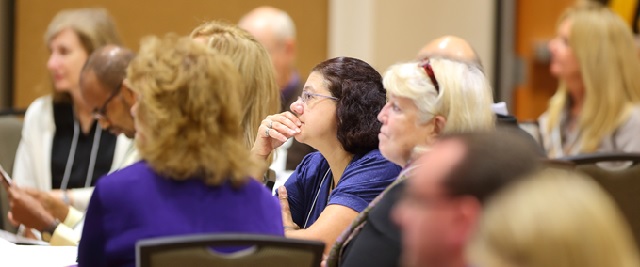
Complete Schedule
Ethics without Borders: Translating the Ethical Standards to an International Setting
Presentation Type
Breakout Session (Electronic Copy Not Available)
Keywords
Health promotion--Moral and ethical aspects--Mozambique; Medical ethics--Mozambique;
Abstract
Despite increased interest in research-based health promotion in international settings, the application of ethical principles in health promotion research in these settings is not often discussed. The gap in progress may stem from a limited understanding of how to translate or apply ethical principles in health promotion among poor nations. In addition, there is a limitation in experience in applying ethics in health promotion research (2). There is a substantial literature base related to bioethics, the practical ethics of medicine and biotechnology, but the application of ethics to health promotion and education research is more limited (3). Although advancing empirical knowledge and public health is the intended end of health promotion research, the means by which that end is met are also very important.
Many nations in developing countries have been struggling with how to apply codes of ethics in health promotion practice. Those who have developed codes of ethics to guide the responsible act of research often lack capacity to reinforce these codes. Mozambique is one such country that is left to the integrity of researchers. The country has distinctive challenges in conducting health promotion research, namely to fulfill moral duties of justice and respect in the face of poverty, lack of resources and the potential for exploitation.
The purpose of this paper is to present one example of how ethical guidelines for U.S. research were translated for use in health promotion research conducted in Mozambique. Using the framework of an evaluation of the cascading health promotion model, this presentation will describe the ways in which principles of the Belmont Report, informed consent, and the Code of Ethics for Health Educators were applied to this international research study. In addition, recommendations and “lessons learned” will be provided for students and faculty seeking to conduct future research in international settings when clear ethical guidelines are missing.
References: 1. Kerridge I, Lowe M, Stewart C. Ethics and Law for the Health Professions. 3rd ed. Annandale, NSW: The Federation Press; 2009. 2. Skolnik R. Global Health 101: Essential of Public Health. 2nd ed. Burlington, MA: Jones & Bartlett Learning; 2012. 3. Sindall C. Does health promotion need a code of ethics? Health Promote Int. 2002; 17:201-3.
Start Date
18-9-2015 11:20 AM
End Date
18-9-2015 12:20 PM
Event Host
Center for Academic Ethics, University of Northern Iowa
Department
School of Health, Physical Education, and Leisure Services
Copyright
©2015 Halkeno Tura and Disa Lubker Cornish
Recommended Citation
Tura, Halkeno and Cornish, Disa Lubker, "Ethics without Borders: Translating the Ethical Standards to an International Setting" (2015). Ethics Conference. 8.
https://scholarworks.uni.edu/ethicsconf/2015/all/8
Ethics without Borders: Translating the Ethical Standards to an International Setting
Despite increased interest in research-based health promotion in international settings, the application of ethical principles in health promotion research in these settings is not often discussed. The gap in progress may stem from a limited understanding of how to translate or apply ethical principles in health promotion among poor nations. In addition, there is a limitation in experience in applying ethics in health promotion research (2). There is a substantial literature base related to bioethics, the practical ethics of medicine and biotechnology, but the application of ethics to health promotion and education research is more limited (3). Although advancing empirical knowledge and public health is the intended end of health promotion research, the means by which that end is met are also very important.
Many nations in developing countries have been struggling with how to apply codes of ethics in health promotion practice. Those who have developed codes of ethics to guide the responsible act of research often lack capacity to reinforce these codes. Mozambique is one such country that is left to the integrity of researchers. The country has distinctive challenges in conducting health promotion research, namely to fulfill moral duties of justice and respect in the face of poverty, lack of resources and the potential for exploitation.
The purpose of this paper is to present one example of how ethical guidelines for U.S. research were translated for use in health promotion research conducted in Mozambique. Using the framework of an evaluation of the cascading health promotion model, this presentation will describe the ways in which principles of the Belmont Report, informed consent, and the Code of Ethics for Health Educators were applied to this international research study. In addition, recommendations and “lessons learned” will be provided for students and faculty seeking to conduct future research in international settings when clear ethical guidelines are missing.
References: 1. Kerridge I, Lowe M, Stewart C. Ethics and Law for the Health Professions. 3rd ed. Annandale, NSW: The Federation Press; 2009. 2. Skolnik R. Global Health 101: Essential of Public Health. 2nd ed. Burlington, MA: Jones & Bartlett Learning; 2012. 3. Sindall C. Does health promotion need a code of ethics? Health Promote Int. 2002; 17:201-3.



Comments
Location: Maucker Union - Breakout rooms